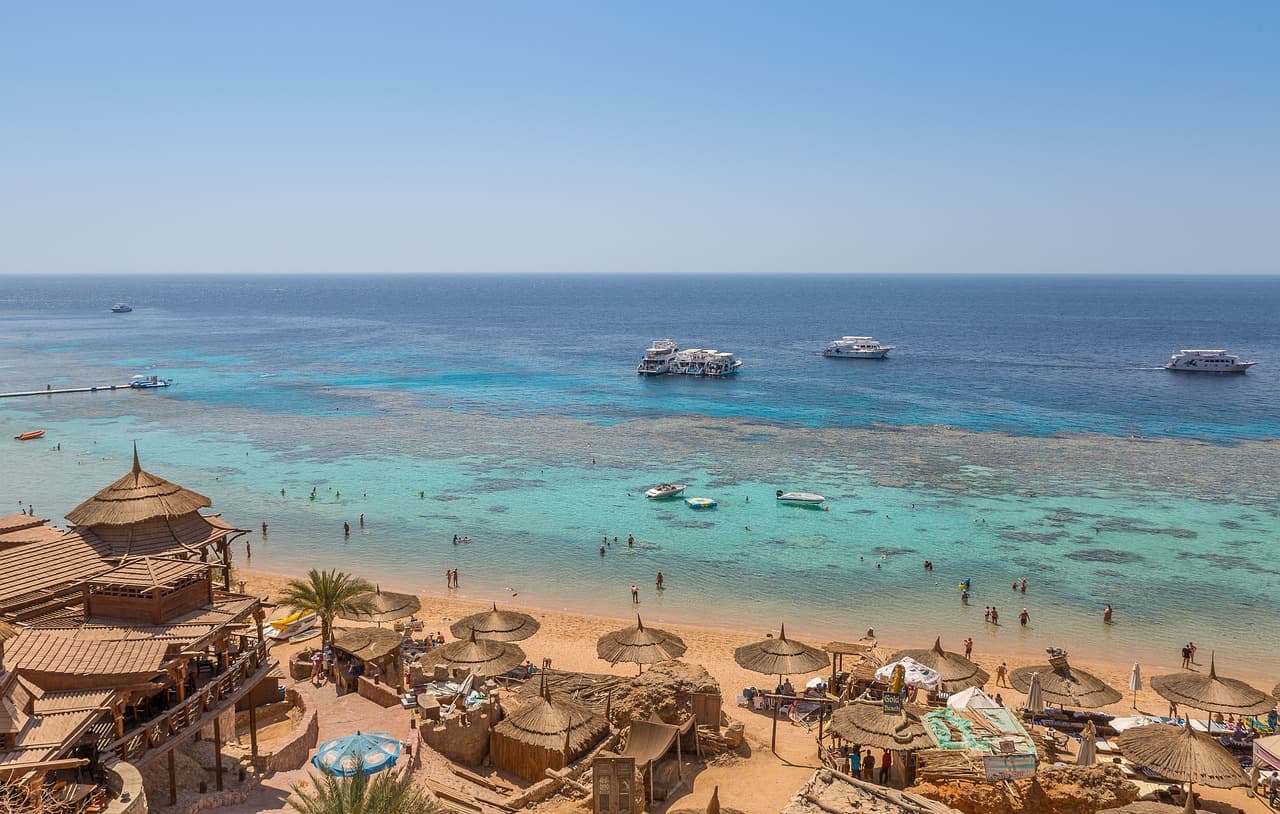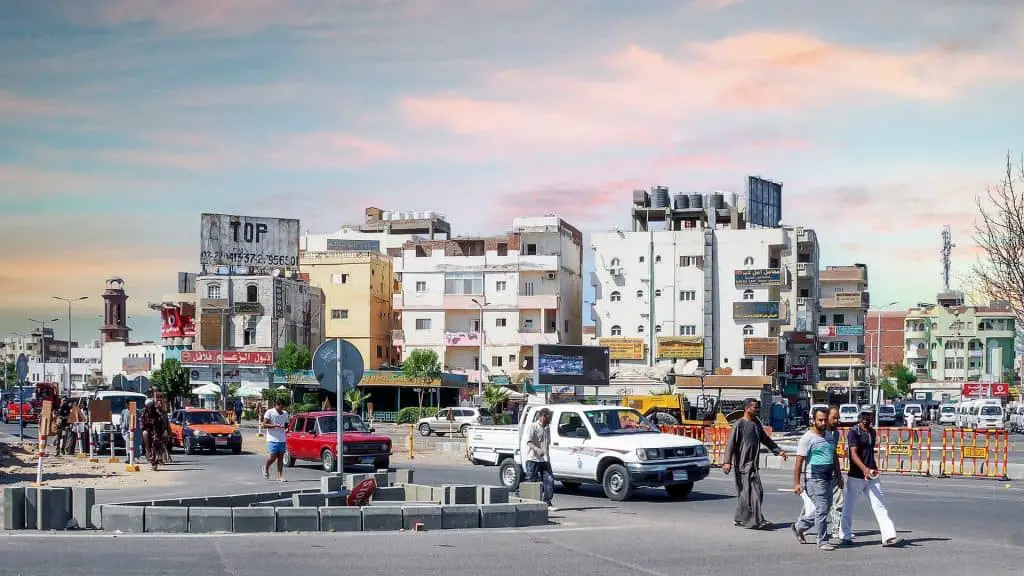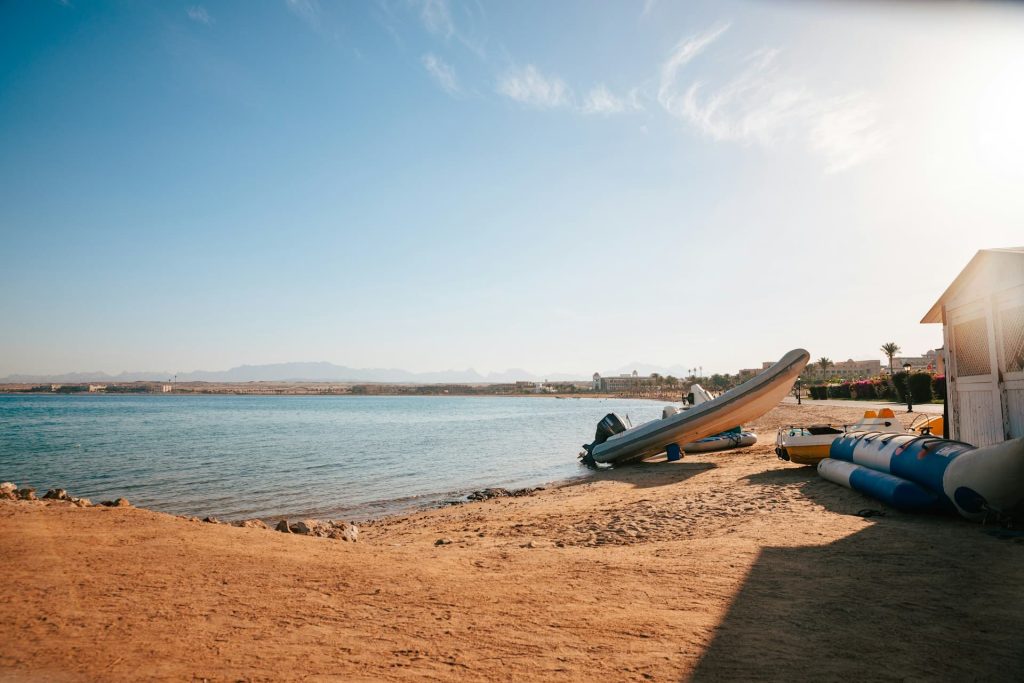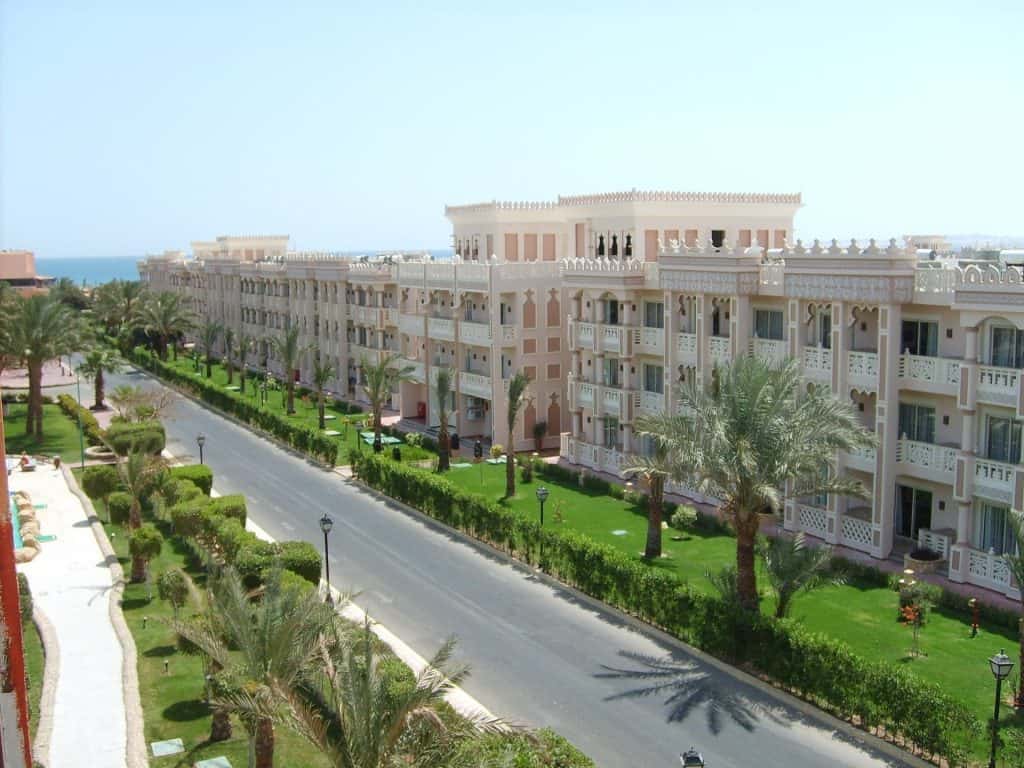Egypt Travel Advice: Essential Tips for a Great Trip
When planning your trip, knowing the latest Egypt Travel Advice is essential for a safe and enjoyable experience. The…

When planning your trip, knowing the latest Egypt Travel Advice is essential for a safe and enjoyable experience.
The UK Government advises checking travel safety guidelines, as certain regions may pose risks due to security concerns. It’s crucial to stay informed about entry requirements, health advisories, and any restrictions before you travel.
The Foreign, Commonwealth & Development Office (FCDO) offers detailed guidance for British travellers heading to Egypt.
You should be aware of visa requirements and understand what documents you will need. The British Embassy in Cairo is also a helpful resource for any emergencies or questions you might have during your stay.
Egypt’s rich history and stunning landscapes make it a fascinating destination, but preparation is key. By following the travel advice, you can explore everything from the Pyramids to the local markets with confidence and peace of mind.

*This site contains affiliate links, where I get a small commission from purchases at no extra cost to you
Egypt Travel Advice
When travelling in Egypt, it’s important to stay informed about safety and security matters. Understanding terrorism threats, regional conflicts, and crime can help you stay safe during your trip.
Egypt faces a risk of terrorism, especially in areas like North Sinai. Terrorist attacks have occurred, targeting security forces and civilians.
It’s wise to avoid large gatherings or demonstrations, as they can become dangerous. Stay alert and monitor local news for updates on military activity, especially in places like Ismailiyah Governorate. Taking these precautions can keep your trip safer.

Regional Conflicts and Borders
Egypt shares borders with regions experiencing conflict. Tensions can escalate quickly, leading to potential security issues.
The situation near the borders may change rapidly, so it’s essential to keep informed.
Stay away from border areas and follow any travel advice from local authorities. Being cautious about where you are can help you avoid unexpected dangers related to regional conflicts, ensuring a smoother travel experience.

Crime and Personal Safety
While many areas in Egypt are generally safe, crime does occur. Petty crime, such as pickpocketing and scams, can be common in busy places. It’s important to stay vigilant and keep your belongings secure.
Be particularly aware of your surroundings in crowded markets or tourist areas.
Cases of sexual assault have been reported, so it’s advisable to travel in groups and avoid isolated places, especially at night. Using reputable transport options and staying in well-reviewed accommodations can enhance your safety.

Travel Essentials
When planning your trip to Egypt, it’s important to know the visa and entry requirements, how to handle money, and the local laws and customs. Being informed helps ensure a smooth journey.
Visa and Entry Requirements
For British passport holders, you will need a visa to enter Egypt. You can apply for an e-visa online, which is convenient and usually processed quickly. Alternatively, you can opt for a visa on arrival at selected airports, but this may involve longer wait times.
Ensure your passport is valid for at least six months beyond your arrival date. When entering the country, you will receive an entry permission stamp. This stamp is essential, as not having one can cause issues when leaving.
Currency and Payment Methods
The currency in Egypt is the Egyptian Pound (EGP). When you arrive, it’s a good idea to exchange some money for local use. Many places still accept cash, so having both large and small notes is helpful, especially for tipping.
ATMs are widely available in larger cities and tourist areas. They often accept international debit and credit cards. Cards can be used at hotels, shops, and restaurants, but always check for possible transaction fees.

Local Laws and Customs
Being aware of local laws and customs is essential for a respectful visit. Egypt is a predominantly Muslim country, so dress modestly, especially in religious sites. For women, it’s advisable to wear clothing that covers shoulders and knees.
LGBT+ travellers should exercise caution as local attitudes can be conservative. Public displays of affection may not be well received, so it’s best to be discreet in public.
Health and Wellbeing
When travelling to Egypt, it’s important to consider health and insurance. Access to medical services can vary, so knowing what to expect can keep you safe and healthy.
Travel Insurance and Health Advice
Before your trip, secure a good travel insurance policy. This coverage should include health expenses, as healthcare can be costly if you need treatment.
Check if your insurance covers medical evacuation, especially if you plan to visit remote areas. Always keep your insurance details handy while travelling.
Consult your doctor about vaccinations, such as those for hepatitis A and typhoid. Malaria is a concern in some areas, so discuss prevention strategies.
Be aware of public holidays, which may affect healthcare access. Services can be limited during these times, so plan accordingly.

Medical Facilities and Services
Egypt has both public and private healthcare options. Private hospitals often provide better quality care and shorter wait times. Look for facilities that have English-speaking staff.
In major cities like Cairo and Alexandria, you’ll find well-equipped hospitals. Smaller towns may have limited services, so know the nearest facility before travelling.
Pharmacies are widely available and can provide medications, but it’s wise to bring any necessary prescriptions with you. A first aid kit can also be helpful for minor issues.
In case of emergencies, dial 123 for an ambulance. It’s essential to familiarise yourself with local health services before your arrival.
Regional Travel Guidelines
When travelling in Egypt, it’s important to be aware of specific regional advice, cultural sites to explore, and transportation options. Each region has its own unique offerings and challenges that you should consider.
Governorate-Specific Advice
In Cairo, stay alert to pickpockets and busy traffic. The Giza Governorate is home to the iconic Pyramids, where you can experience rich history but should hire a reputable guide.
Luxor, known for the Valley of the Kings, offers a deep dive into ancient Egypt; visiting temples is highly recommended. Aswan boasts a slower pace and beautiful Nile views, perfect for relaxation.
In Taba, the border with Israel is closely monitored, so check travel advisories. Siwa Oasis is remote but beautiful, ideal for experiences like desert safaris. Always consult the FCDO’s travel advice for the latest updates.

Cultural and Tourist Destinations
You’ll find a wealth of cultural experiences in Egypt. The Red Sea Resorts, such as Sharm El Sheikh and Hurghada, are renowned for diving and water sports. Explore coral reefs and marine life, but choose certified diving operators for safety.
Don’t miss Abu Simbel, famous for its massive temples. It requires some planning, but the view is worth it.
In Luxor and Aswan, you can explore ancient temples and tombs rich in history, immersing yourself in Egypt’s past. Each destination offers guided tours, which enhance your experience and understanding.

Transport and Navigation
Navigating Egypt can be an adventure. For airport access, commercial flights to major cities are available. In cities like Cairo, use registered taxis or ride-hailing apps for safety.
Public transport varies; buses are cheap but can be crowded. If you prefer road travel, consider car rentals, but be cautious on busy roads.
In coastal areas, sea travel options are popular, especially for diving trips. Make sure to check the schedules in advance.
Cultural Sensitivities and Etiquette
When visiting Egypt, it’s essential to be mindful of cultural sensitivities and etiquette. This awareness will help you engage positively with locals and enjoy your travel experience.
Religious Sites and Practices
Egypt is rich in history and religion, with many sacred sites. When visiting religious places like mosques or churches, dress modestly. For women, wearing a headscarf is often respectful. Men should wear long trousers and avoid sleeveless shirts.
Be quiet and respectful during prayers. If you enter a mosque, remove your shoes at the entrance. Also, take care when taking photos; always ask for permission, especially in religious settings. These actions show your respect for local customs and beliefs.

Social Behaviour Norms
Social norms in Egypt emphasise politeness and respect. Greetings usually involve a firm handshake. Remember to use your right hand for handshakes and giving gifts, as the left hand is considered unclean.
When conversing, maintain eye contact but avoid getting too close, as personal space varies.
It’s polite to ask about a person’s health and family, showing genuine interest. Public displays of affection are generally frowned upon, especially in conservative areas.
Frequently Asked Questions
When planning your trip to Egypt, you might have several specific questions. This section addresses safety concerns, current travel situations, entry requirements, vaccinations, and advice for specific areas such as Sharm El Sheikh and Hurghada.
Yes, there are some safety concerns regarding travel to Egypt. Certain regions experience unrest, but many tourist areas remain safe. Always check the latest travel advisories for updates on safety.
Egypt is generally stable for tourists, especially in major cities and popular destinations. However, it’s wise to remain aware of your surroundings. Be informed about any local events or changes in the security situation that may arise.
Visitors typically need a valid passport and a visa to enter Egypt. You can obtain a visa on arrival or apply for an e-visa before your trip. Always check the latest requirements as they can change.
Yes, some vaccinations are recommended before travelling to Egypt. These may include hepatitis A, hepatitis B, and typhoid. Consult with a healthcare provider well before your trip to get personalised advice.
Sharm El Sheikh and Hurghada are popular resort areas and are generally safe for tourists. There are still travel advisories that may apply, so check for the latest information specific to these locations before travelling.
British nationals should stay informed about local laws and customs while in Egypt. You can register with the UK embassy for updates on safety and security. It’s also important to have travel insurance that covers all activities planned during your stay.
My Final Thoughts
Travelling to Hurghada and Egypt more generally is a great experience, but like any destination you need to be aware of your surroundings.
A year-round destination, people travel from all over the world. So it’s important you respect local traditions, find out more about where you’re staying and get your bearings early in your trip.
